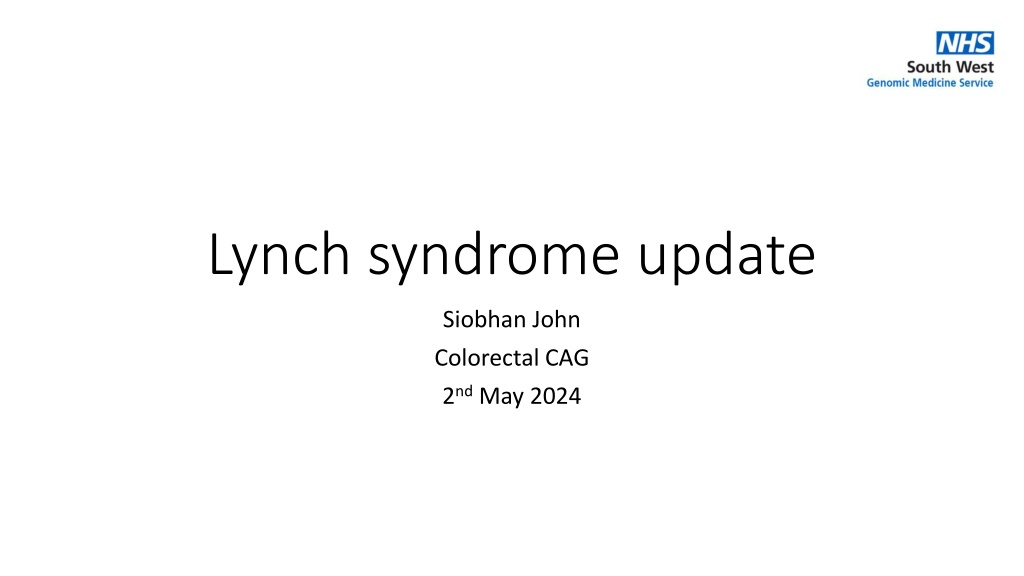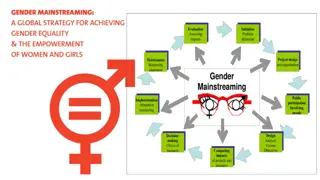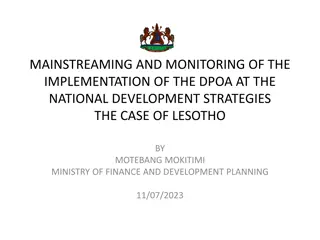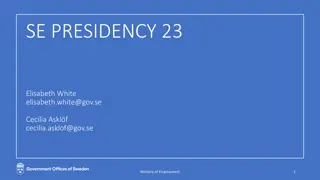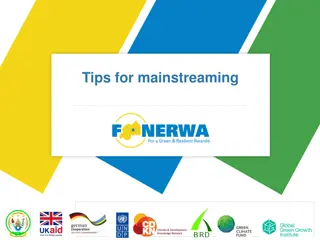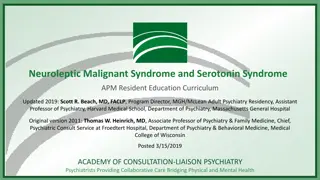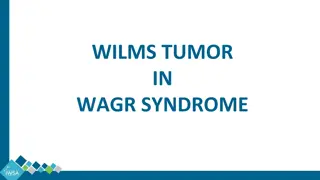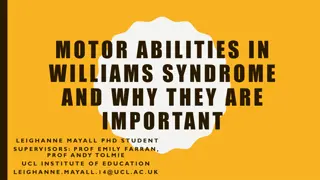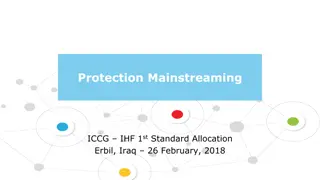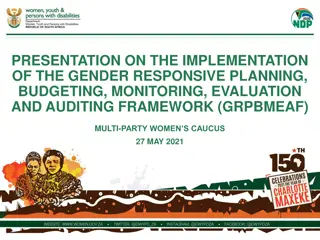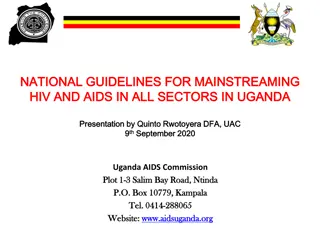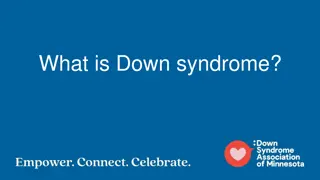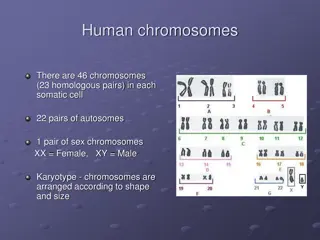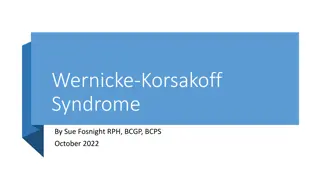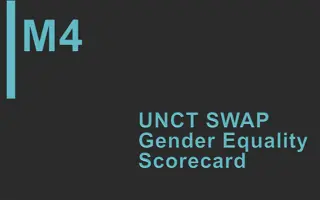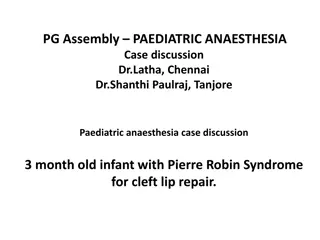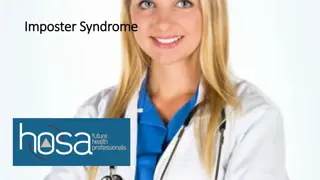Transitioning to Lynch Syndrome Mainstreaming
Updates on Lynch Syndrome mainstreaming efforts including training for nurse specialists, funding support, development of testing assays, and establishment of regional expert networks to enhance patient care. The focus is on transitioning the approach to Lynch Syndrome management towards mainstream practices.
Download Presentation

Please find below an Image/Link to download the presentation.
The content on the website is provided AS IS for your information and personal use only. It may not be sold, licensed, or shared on other websites without obtaining consent from the author.If you encounter any issues during the download, it is possible that the publisher has removed the file from their server.
You are allowed to download the files provided on this website for personal or commercial use, subject to the condition that they are used lawfully. All files are the property of their respective owners.
The content on the website is provided AS IS for your information and personal use only. It may not be sold, licensed, or shared on other websites without obtaining consent from the author.
E N D
Presentation Transcript
Lynch syndrome update Siobhan John Colorectal CAG 2ndMay 2024
Lynch Syndrome - business as usual Short Term Medium Term Long Term Mainstreaming Test Request Training Nurse Specialists by GMSA Nurse Specialists have time to mainstream New nurse specialists have mainstreaming built into training Clinical Genetics Support Training Stop seeing patients to request test Seeing more patients post test Cascade testing volume Clinical Leadership GMSA and Cancer Alliance support MDT leads for LS LS leads part of wider Cancer Service genomics leadership Genomics as business as usual requires less intensive leadership Primary Care Support pathway developments Family history on referral Aspirin prescribing Robust clinical records for genomic conditions inc LS
Transition to business as usual Funding available to support this transition through each cancer alliance Peninsula and SWAG. Over 2 years. Possibility of an inherited cancer nursing role (0.4-0.5WTE) per alliance Development of testing assays MSI plus being assessed for cost-effectiveness and capacity Ongoing development of pathways and cascade testing following diagnosis. GMS working on business case for ICBs and inherited cancer
Mainstreaming Hospitals Mainstreaming Sites UHBW CRC / gynae UHBW - gynae NBT CRC Glos CRC Somerset CRC / gynae (offering cross cover) Tool kit Mainstreaming consent form GLH request form PIL Template letter SOP All pts still referred to clinical genetics but with germline results and seen in appropriate timescale RUH in training CRC / gynae http://www.genomicseducation.hee .nhs.uk/wp- content/uploads/2024/03/Compete ncy-Training-and-Evidence-form- V1.3-E-PDF.pdf Not currently mainstreaming Glouc - gynae UHBW -CRC
Regional Expert network Lynch and Polyposis SWAG & Peninsula, chaired by Frank McDermott (RDUH)/ gastro and clinical genetics present Next Meeting Monday May 20th1230 -1330 MDT discussion for complex patients with inherited cancer/polyps to assist local clinical teams deliver care. Polyposis patients can also be discussed at monthly National Rare Disease Collaborative Network for hereditary polyposis (RDCN) For Lynch/ Polyposis rduh.lynch-polyposis@nhs.net (f.mcdermott@nhs.net; michael.fung@nhs.net; ruth.cleaver@nhs.net;)
Successes 6 meetings (April, June, July, September, November, Jan 2024) Admin support and email address rduh.lynch-polyposis@nhs.net Referral form and outcome Multi specialty including paediatrics/ transition of care Educational element (e.g. lynch like syndrome) Link with RDCN (For polyposis patients) - KPIs
Remedy GP practice guidance on referral to clinical genetics Only 5% of lynch patients are currently diagnosed main routes to diagnosis of lynch Post CRC or endometrial cancer reflex testing National genomics test directory panels R210 and R211 Work performed by Beth Shaw (5thyear medical student, BMS) showed significant number of patients present in a single GP practice (~80/8000) with criteria for referral on R210 (family history) panel. No current guidance on lynch syndrome on remedy. Current document in production and will be agreed on by all relevant parties before publication.
How to find the patients with familial cancer predisposition syndrome? Lynch syndrome prevalence 1:400 Bristol GP Surgery with 8 587 patients - should be 17 patients with Lynch syndrome (so far 1 diagnosed) SurveyMonkey questionnaire: 1. Do you have a FH of 3 or more people diagnosed with cancer 2. Please specify the type of cancer each person was diagnosed with: endometrial bowel other (please specify) 3. Please specify the relationship these people had to you 4. Were any of these diagnoses made when your relative was less than 50 years? -Yes -No -Unsure Beth sent to 6853 patients an AccuRx text message that linked with a SurveyMonkey questionnaire about family history of cancers
Results survey sent to 8653 pts, 1401 responses (20.4%) Cancer Dx in relative < 50 yrs of age Family history of 3 relatives with cancer 234 people with both of the above 16 patients met Amsterdam criteria
Aspirin prescribing in LS Aspirin recommended for LS patients Minimum of 2 years treatment and no longer than 5 years Dose review on publication of CAPP3 Either 150 mg (if < 70 kg) or 300 mg (if > 70 kg) Not for > 65 years old, pregnancy or breastfeeding, other standard contraindications Will be delivered by practice pharmacists Final draft of guidance currently being ratified by all relevant stakeholders webinar to launch it next week in BNSSG
